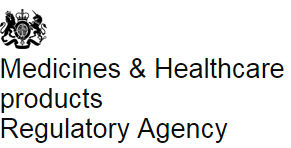预约演示
MHRA revamps UK clinical trial regulation with the promise of faster timelines
2023-03-23
临床3期临床研究

Preview
来源: Pharmaceutical Technology
Credit: Shutterstock/ Ralf Liebhold
This week, the Medicines and Healthcare products Regulatory Agency (MHRA) is introducing major changes to clinical trial regulation in the UK with expedited timelines at several stages. The MHRA hopes this new framework “will remove obstacles to innovation” and “streamline the regulation of clinical trials” amongst other things. These changes come following a public consultation with the Healthcare Research Authority, to which a government response was published on March 21.
The MHRA plans to shorten the timeline for the completion of an application review to a maximum of 30 days, and a maximum of 10 calendar days to make a final decision upon receipt of further information. Furthermore, the UK is now implementing a legislative requirement to publicly register clinical trials and share summary results with any research participants. The new framework will introduce a legal mandate to register a trial in the World Health Organisation (WHO) public register. Researchers will also have to publish a summary of results within 12 months of the end of the trial. The press release stated that sharing trial findings with participants in a, yet to be defined, “timely manner and suitable format” will also be required by law.
The agency reports that, in the pilot phase, these revisions halved the approval times for studies and cut the time from application to recruiting the first patient by 40 days. The new regulation has been designed to embed these changes. .
The new rules are particularly relevant as new trends and innovation are taking precedence in clinical trial design. MHRA hopes to keep more modern trial designs in mind, such as decentralised clinical trials, with these developments.
In a press release, Marc Bailey, MHRA’s Chief Science and Innovation Officer, said “Our world-first Covid-19 approvals showed how important it is to ensure that regulation is flexible and agile. This overhaul of the clinical trials legislation will do just this – it will move us away from a one-size-fits-all approach to the regulation of clinical trials and help to streamline approvals by removing granular and duplicative regulatory requirements”.
The news arrives after a 2022 The Association of the British Pharmaceutical Industry (ABPI) report said the UK’s collapsing clinical research industry was collapsing. Between 2017 and 2021, the number of industry-led Phase III trials initiated fell by 48%, as per the report. In an announcement after the MHRA’s release, the ABPI’s Chief Executive, Ricard Torbett responded positively to the UK regulator’s changes. He said, “It’s great to see the MHRA taking forward these important changes to UK clinical trials regulation centred on patient safety and the benefits of participating in research”.
更多内容,请访问原始网站
文中所述内容并不反映新药情报库及其所属公司任何意见及观点,如有版权侵扰或错误之处,请及时联系我们,我们会在24小时内配合处理。
机构
适应症
靶点
-药物
-生物医药百科问答
全新生物医药AI Agent 覆盖科研全链路,让突破性发现快人一步
立即开始免费试用!
智慧芽新药情报库是智慧芽专为生命科学人士构建的基于AI的创新药情报平台,助您全方位提升您的研发与决策效率。
立即开始数据试用!
智慧芽新药库数据也通过智慧芽数据服务平台,以API或者数据包形式对外开放,助您更加充分利用智慧芽新药情报信息。




